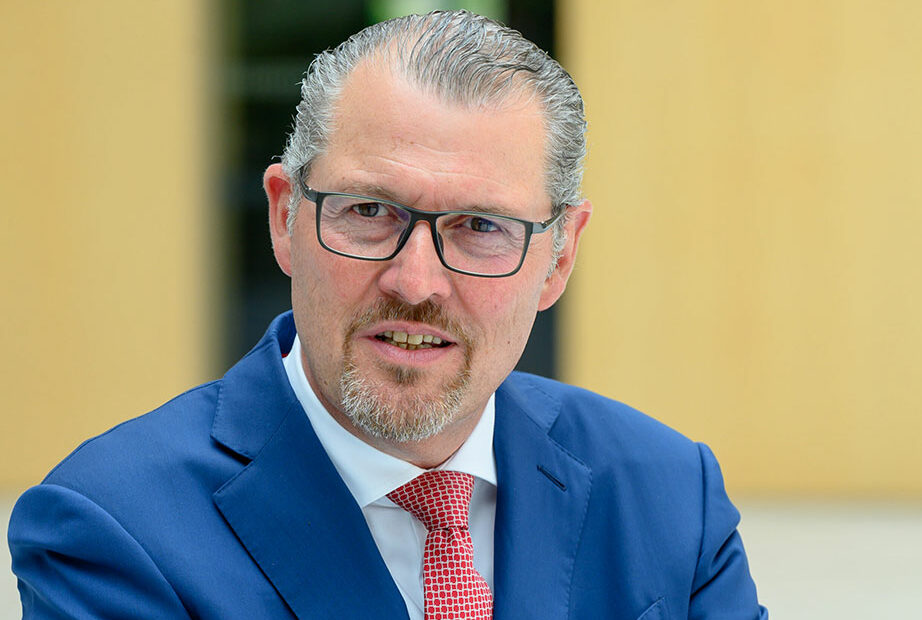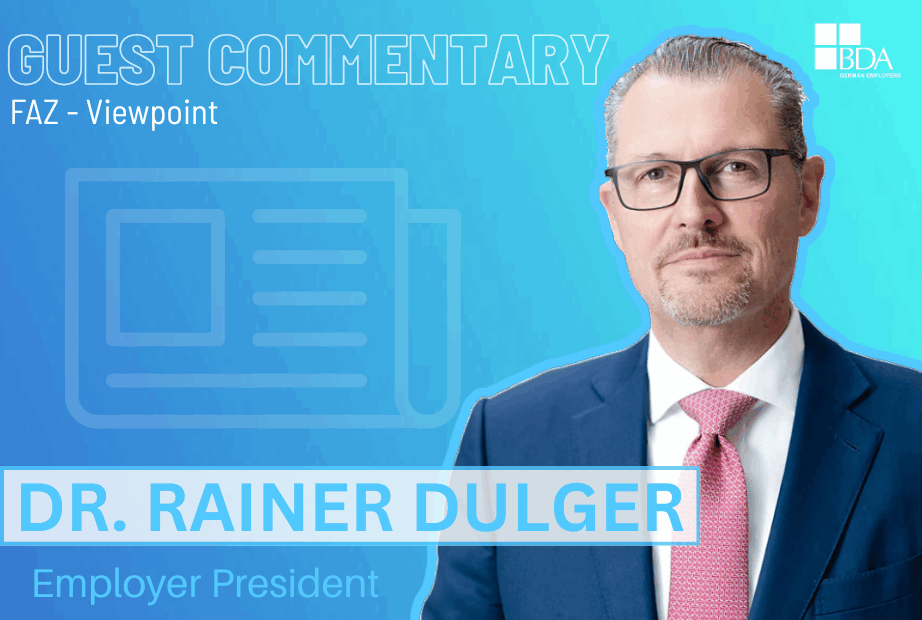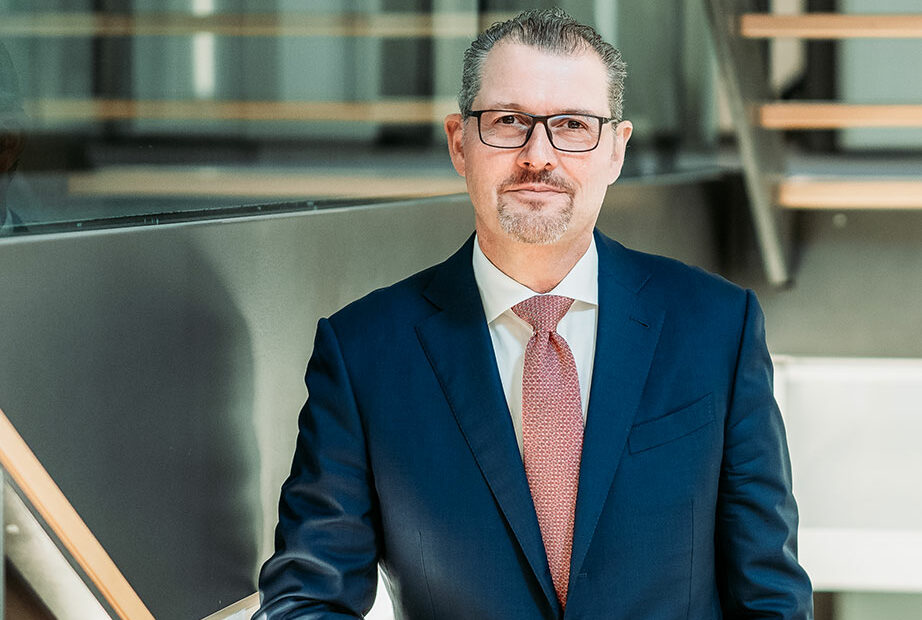News at a glance
6. August 2025
Employers' President Dr. Rainer Dulger on today's cabinet decision on the pension package
31. July 2025
Commenting on the labour market figures announced today, Employers' President Dr. Rainer Dulger...
27. June 2025
BDA Managing Director Steffen Kampeter on the Minimum Wage Commission's decision to adjust the level of the statutory minimum wage...













